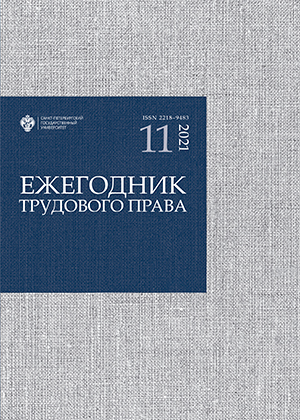Analysis of China’s response to the COVID-19 pandemic in the field of labour
Abstract
In response to the pandemic of new coronavirus infection, the Chinese government has closed down many cities, suspended businesses, restricted their activities and issued self-isolation orders for the population. However, these critical public health measures have created economic chaos and caused unemployment for millions of people. Since mid-January 2020, Chinese authorities have taken unprecedented measures to contain the virus, including closing down a large number of cities in Hubei Province, introducing mandatory self-isolation for almost half of the country’s population, extending public holidays, imposing travel restrictions, closing schools and businesses, and more. In Chinese labor law science, there was a discussion about the nature of the days that were declared as non-working. Many issues were solved differently in different provinces of the People’s Republic of China. In order to mitigate the impact on workers and employers, the Chinese government also issued various regulations to maintain the basic living conditions of workers and reduce pressure on employers. These acts cover such areas as wage payment, specifics of dismissal (which only affected workers), social security and social protection. The government also developed a number of measures aimed at special protection of migrant workers, which are understood as Chinese citizens who are not registered in cities and live in rural areas. The article also addresses the business response to the economic crisis caused by the pandemic. A new employment model has emerged in the
labor market — the sharing of workers, which allows for better distribution of labor, but also brings potential problems in the area of labor legislation.
Keywords:
COVID-19, payment of wages, dismissal, unemployment insurance, insurance against industrial accidents and occupational diseases, social protection, migrant workers, workers sharing
Downloads
References
Downloads
Published
How to Cite
Issue
Section
License
Articles of "Russian Journal of Labour & Law" are open access distributed under the terms of the License Agreement with Saint Petersburg State University, which permits to the authors unrestricted distribution and self-archiving free of charge.




